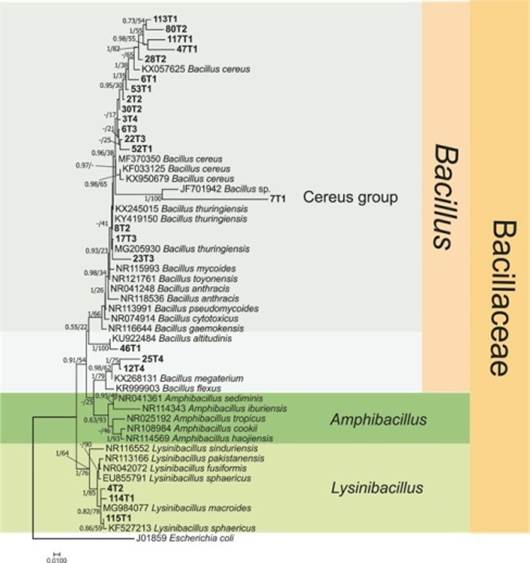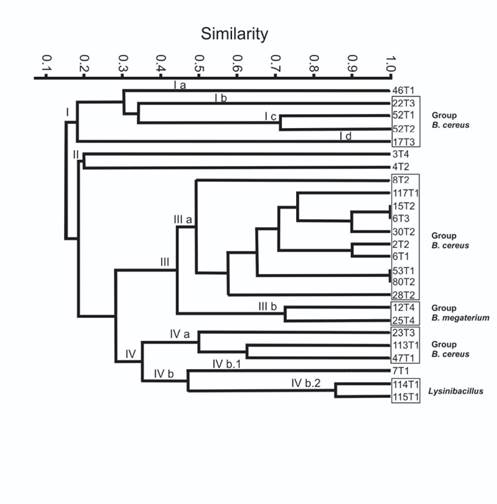ABSTRACT
The use of bacteria in growth promotion and biological control of plant diseases can minimize environmental contamination caused by the indiscriminate use of pesticides and chemical fertilizers. We aimed to evaluate growth promotion and biological control of Corynespora cassiicola in tomato seedlings mediated by beneficial bacteria isolated from a non-rhizospheric Amazon soil containing different amounts of biochar, and to identify to which groups of bacteria the strains belong. We obtained 200 strains of bacteria from experimental plots containing biochar doses of 0, 40, 80 and 120 t ha-1. Of these, 53 strains were selected by root colonization tests. Based on growth promotion parameters, 25 strains were screened, identified by molecular characterization and evaluated for indoleacetic acid (IAA) production, phosphate solubilization and biological control. The best dose of biochar for colony formation was 40 t ha-1, and a regression model indicated 34 t ha-1 as the optimal dose. The production of IAA was observed in 18 (75%) strains, and two (8%) strains were able to solubilize phosphate. The efficiency in root growth promotion was up to 125%, and the percentage of plant protection ranged from 50 to 59%. Molecular characterization showed that the bacteria used in this study belong to the genera Bacillus and Lysinibacillus.
KEYWORDS:
beneficial bacteria; Corynespora cassiicola; Solanum lycopersicum; target spot

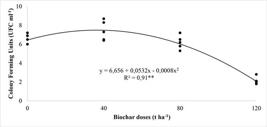 Thumbnail
Thumbnail
 Thumbnail
Thumbnail
 Thumbnail
Thumbnail
 Thumbnail
Thumbnail
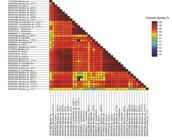 Thumbnail
Thumbnail
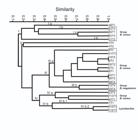 Thumbnail
Thumbnail



